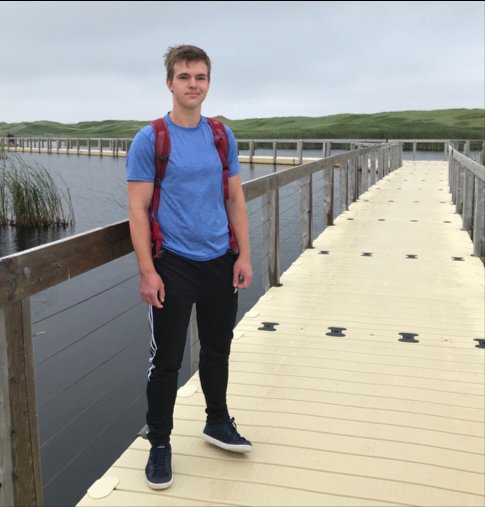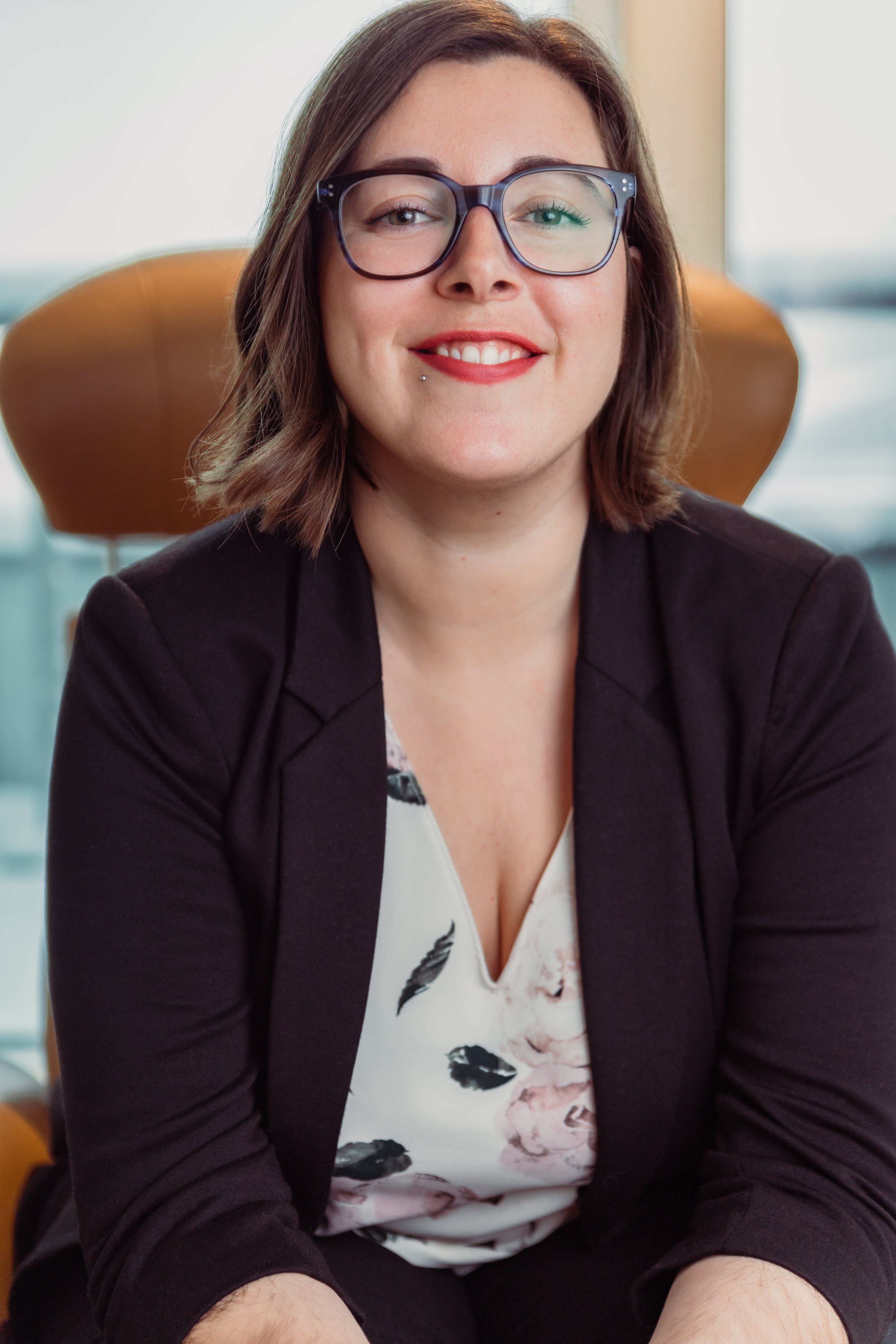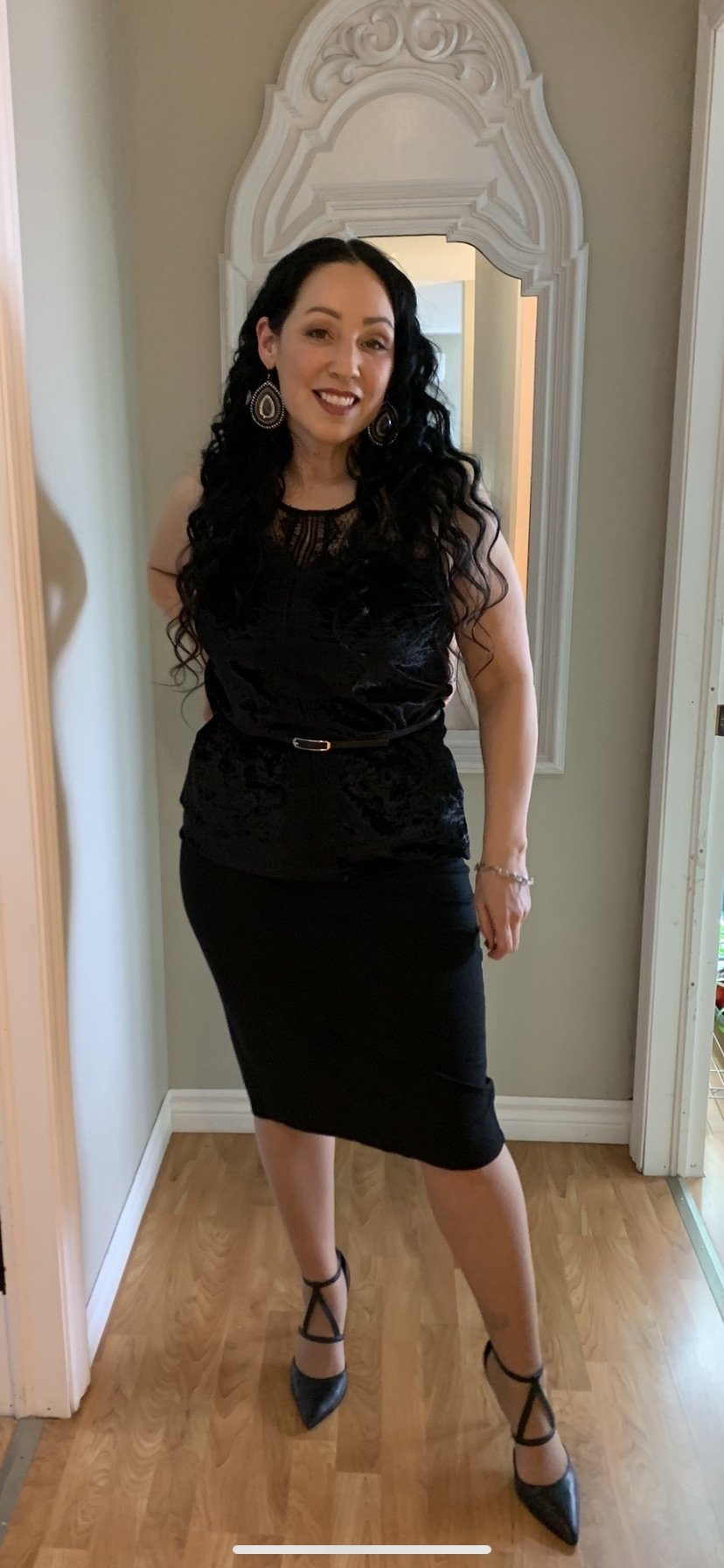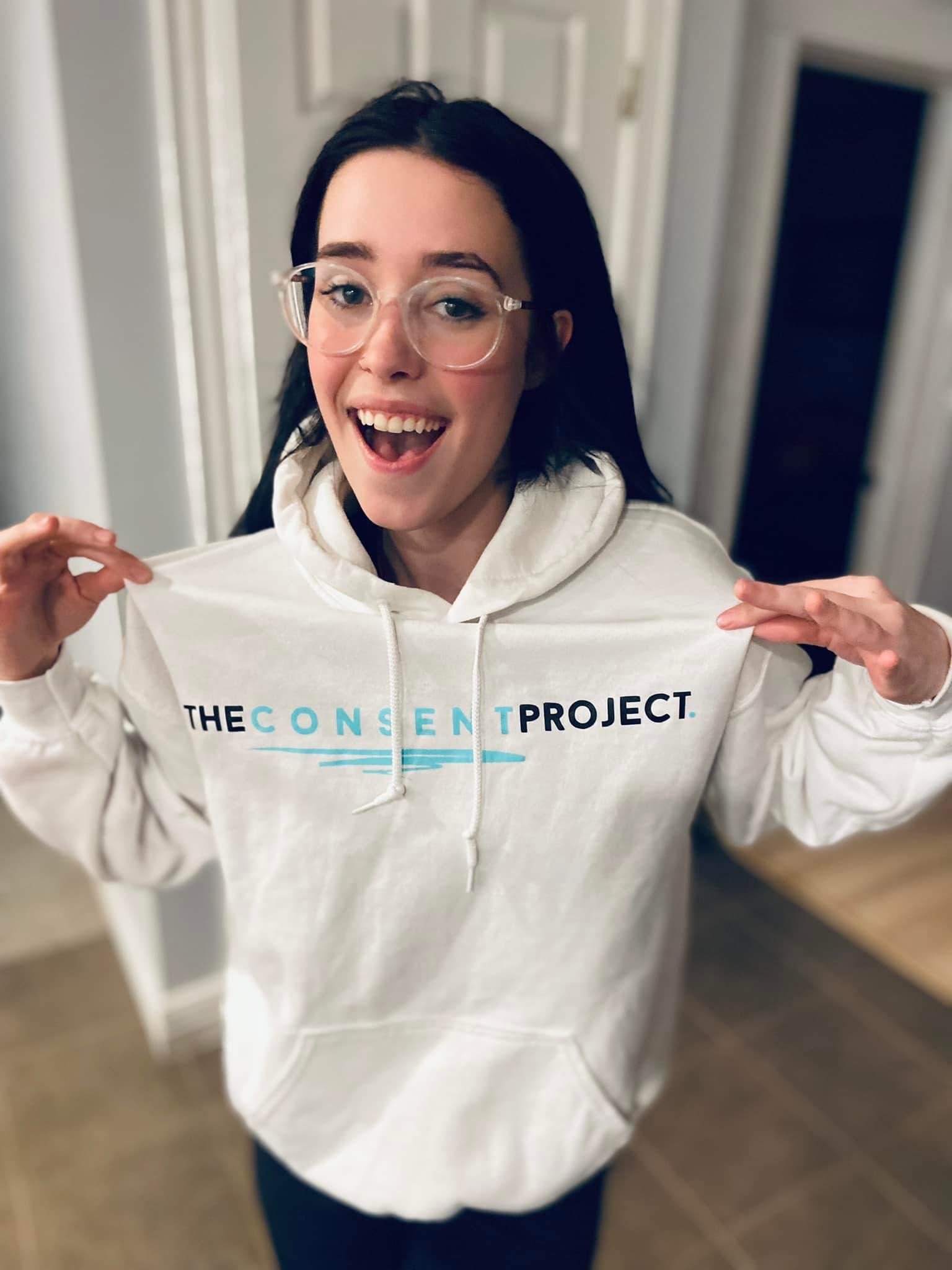Panel discussion
What does leading transformational change mean to you?
How do you transform vision into action?
How do you stay motivated?
How do you get other people to get excited about your vision?
Tamsyn Brennan, RSW
Tamsyn holds a BA from the University of Waterloo, an MSW from the University of Toronto, and an Executive Masters in Business Administration from Saint Mary’s University. She is now completing her PhD, studying managerial models that encourage resiliency by reducing occupational stress injuries in social workers, at Dalhousie University. She believes that by organizations investing into the health of their staff, they are promoting quality assurance in their service delivery, especially in trauma-exposed environments. Ultimately, healthy staff lead to healthier communities.
Dr. Catrina Brown, RSW
Dr. Catrina Brown, RSW, is an associate professor at the School of Social Work at Dalhousie University, and was one of the co-authors of a mental health report published by NSCSW in 2021 (Repositioning social work practice in mental health in Nova Scotia). Her teaching, research and writing focuses on women’s health and mental health issues, including “eating disorders,” substance use problems, depression, trauma and post-trauma and sexualized violence within a feminist postmodern/narrative lens. She is a private practitioner psychotherapist, and adopts a feminist, narrative, discursive and collaborative approach.
Divine Gbeve Onyenike
Divine recently graduated with a BSW from the Dalhousie School of Social Work. Her interest in working in the field of social work stems from her love for helping others and passion for volunteering that she possessed from a young age. Divine has always been deeply committed to helping others, especially assisting individuals who come from marginalized communities. She currently works as the project coordinator for the East Preston Empowerment Academy.
As part of the research team for the Culturally Responsive Healthcare to Reduce Gender Based Violence project, Divine was also part of presenting that research during a mini-conference held by NSCSW as part of National Social Work Month in March 2022 (The Shadow Pandemic). It explored meanings of culturally responsive care from an Africentric lens, and applying Africentric social work to address gender-based violence within African Nova Scotian communities.
Tristan Kowal
Tristan engages in research and advocacy for first voice led (emic) approaches to social systems change. Some common themes are housing, youth services, and accessibility. His "work" builds on his experiences with mental illnesses, addictions, and homelessness, through the lens of his identities as an autistic, disabled, and queer person. Tristan is also in third year of therapeutic recreation at Dalhousie, which has helped him to more effectively communicate with service providers both professionally and as a client. Tristan is grateful for the opportunities to advocate for meaningful inclusion of people the systems were built to exclude. He is aware of his privilege as a white settler student and trans man, and uses it to amplify marginalized voices into leadership positions.
Shila LeBlanc
Shila is a queer settler, a treaty land inhabitant, and a strong listener, facilitator, and communicator. She has worked directly with her community in a wide range of roles. Realizing that restorative approaches should extend beyond a tiny corner in the justice system, her business Restorative Approach was born. She’s worked as a caseworker for restorative justice, as an investigator with the NS Human Rights Commission, and has a long history of interesting contract work. Shila is a fierce believer in restorative conversations and strives to embody a restorative approach in every area of her life. Her professional interests include restorative justice, restorative approaches, reconciliation and treaty history, harm reduction, asset-based community development, labour organizing and grassroots justice.
Michelle LeBrun, RSW
Michelle is a Mi'kmaw clinical therapist with a private practice. Her area of specialty is Indigenous mental health, trauma and crisis. She regularly facilitates workshops and consultation around decolonization and cultural safety/inclusiveness. She is a direct descendant of Indian Residential Schools, and is passionate about supporting survivors, families and communities.
Elder Billy Lewis (he/him)
Billy is hard to capture in a digital bio. He is a peacemaker, a trickster, a passionate advocate and protestor, an Indigenous knowledge keeper, an avid reader, and a well-loved and well-known member of the community. He is no spring chicken but this hasn’t stopped him from working on countless community projects that support the common good. He currently occupies the role of Dalhousie Elder in Residence and acts as an Elder in other places as well: in restorative justice circles, for event openings, and for the KAIROS Blanket Exercise. His interests include justice activism, restorative approaches to justice, labour organizing, sustainable gardening, and creating the loving communities we long for.
Dr. Sheri McConnell, RSW (she/her)
As an assistant professor at the Memorial University School of Social Work, Sheri facilitates teaching/learning, engages in research, and is team lead for the BSW, Nunavut (Nunavut Arctic College - Memorial University partnership). Sheri also offers supervision and counselling with Coastal Health NL.
As a registered social worker and a feminist, her practice is centred in respectful relationships, equity and social justice, decolonization and reconciliation, personal and community healing and well-being, and social action and social change.
Tanya McHarg, RSW
Tanya has been a social worker for the past 20 years, and is now the executive director of the Association of Black Social Workers. She’s currently pursuing her Master of Social Work degree at Dalhousie; her prior studies at St. Thomas University focused on anti-Black racism, resulting in a sociology degree with honours, and she completed her BSW with the University of Calgary. Tanya is originally from the East coast and recently resigned her position with the Government of Alberta to move to Nova Scotia.
Over the years Tanya has worked in a number of roles, with interests in poverty, homelessness, addictions, women’s issues, and LGBTQIA2S+ rights. Tanya is passionate about bringing attention to anti-Black racism, systemic racism, and fighting for a fair and equitable society where every person has the opportunity to thrive.
Janet Pothier, RSW
Janet is a social worker and a term member of faculty at the Dalhousie School of Social Work. Passionate about social work education and community development. she embraces a critical social work lens to inform and shape her professional and personal approaches to life and work. Much of her career has focused on cross cultural issues in social work practice, particularly within the context of decolonizing social work practice and community development approaches with Indigenous communities.
Mario Rolle, RSW
Growing up in the inner city of Bain Town in Nassau Bahamas, Mario has seen many murders, assaults, and robberies throughout his life. This life was something that Mario was not interested in being a part of. He decided to move to Nova Scotia in 2009 to further his education in criminology.
While living in Nova Scotia, Mario married into the East Preston community. He now has a double degree in criminology and sociology from Saint Mary’s University, and both Bachelor and Master of Social Work degrees from the Dalhousie School of Social Work . He has volunteered with CeaseFire Halifax, the Health Association of African Canadians (HAAC) and Association of Black Social Workers (ABSW). As one of the HAAC’s directors, Mario’s vision is promoting health and wellness for persons of African ancestry living Nova Scotia.
Currently Mario is on a sabbatical from his role as the health service manager for the Nova Scotia Brotherhood (the only health care service that focuses on Black men’s health & mental health), Community Health & Wellness teams and several other clinics in Central Zone. His career aspiration is to become the first black CEO for Nova Scotia Health.
Jelynne Samson
Jelynne is a grade 12 student at West Kings District High School. Last year she and her friend Darby Curtis transformed their vision of normalizing consent into action by applying for the Sexual Violence Prevention Innovation grant. The Nova Scotia Government awarded them $5,000 to create a sexual violence awareness campaign in their school and surrounding community. The grant was used for starting The Consent Project, an awareness campaign which aims to shift teen culture by increasing proactive preventative behaviours to decrease dating violence.










